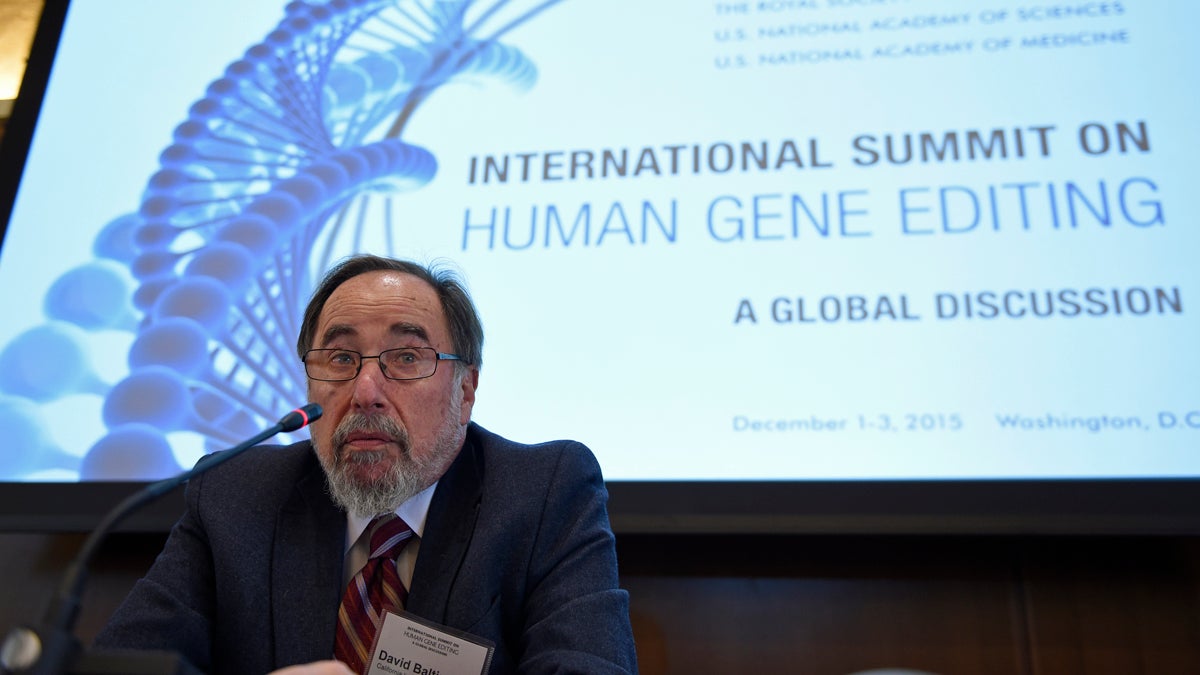Scientists gather to talk about the future of gene editing
Listen
Nobel laureate David Baltimore of CalTech speaks to reporters at the National Academy of Sciences international summit on the safety and ethics of human gene editing
The field of genetics is evolving at a rapid rate, particularly gene editing.
The field of genetics is evolving at a rapid rate, particularly gene editing. In a recent international summit in Washington D.C., gene-editing specialists congregated to discuss a technique called CRISPR.
CRISPR is a procedure that allows geneticists a way to edit specific genes of individuals. The technique identifies a molecular pathway that induces a break in the gene of interest. The geneticist would then be able to modify the sequence of the DNA while the cell repairs the break. The tricky aspect of it is how to make the technology more precise.
Jef Akst, senior editor at The Scientist, described the controversy associated with the more precise CRISPR in a recent interview with the Pulse.
“It’s something that we’ve been doing for a long time, just not that efficiently,” she said.
There are several gene therapies in clinical trials that could benefit from CRISPR. For example, the sequence for a T-cell’s HIV receptor could be knocked out of a gene, rendering an individual’s cells immune to infection.
“The big concerns are editing the genomes of human embryos,” Akst said. “When you are genetically modifying the egg, the sperm, or the embryo, you are genetically modifying the whole human.”
In April 2015, a Chinese research team was able to successfully edit an embryo’s genes. This prompted the NIH to lead a discussion about the ethics of gene editing and how to best determine appropriate situations to use this technology.
“The obvious knee-jerk reaction is designer babies,” said Akst.
CRISPR could ensure parents not only a healthy baby, but also an extremely attractive and intelligent one. Many fear that this could encourage eugenicist ideologies and result in a dystopian future. Such qualms were addressed by many of the speakers in the Washington D.C. conference.
However, the benefits of germ line gene editing studies were taken into account. For example, with the help of IVF screening, the CRISPR technique would allow genetic intervention, preventing the defective parental gene would not affect the unborn child.
“We can do this in a way that most people agree is ethical and worthwhile,” says Akst.
And there is some time for geneticists to come up with that. Despite many advances in germ-line editing, there remains a good deal of basic science research that needs to be done. This was emphasized by CRISPR’s past history of false starts and gene therapies gone horribly wrong.
CRISPR could be applied to gene therapies cleared for clinical trials within 5 to 10 years, but gene therapies currently in clinical trials could be approved even sooner.
WHYY is your source for fact-based, in-depth journalism and information. As a nonprofit organization, we rely on financial support from readers like you. Please give today.



